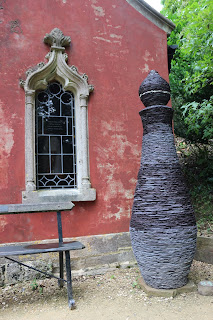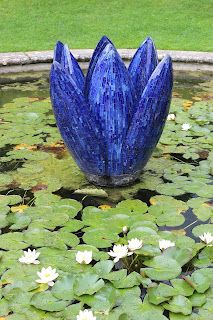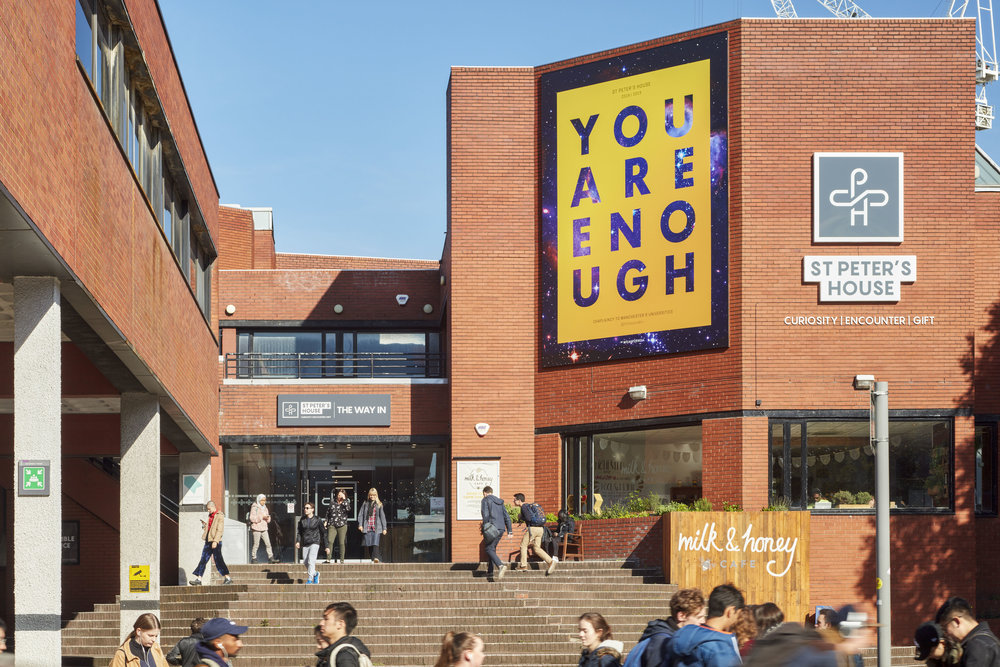Here is the sermon I preached at
St Martin-in-the-Fields today:
‘
Boris Johnson must peddle Brexit optimism "as if he were a steroid-boosted cyclist trying to win the Tour de France;" between now and October 31, key Brexiteer Jacob Rees-Mogg has argued’. ‘Johnson’s promise to prove “
the doubters, the doomsters, the gloomsters” wrong, and his claim that “no one in the last few centuries has succeeded in betting against the pluck and nerve and ambition of this country”, is in exactly that vein’.
Whether this is a credible Brexit strategy I’ll leave to you to decide but what it has done is initiate a national debate regarding the nature and value of optimism. For instance, in ‘
one of the standout moments in Rory Stewart’s ill-fated campaign for No 10’, Stewart ‘compared his rivals’ defiant optimism about Brexit to a man trying to cram three bags of rubbish in an impossibly-full dustbin while yelling, “Believe in the bin bags!”’
Assessing Johnson’s
use of optimism in The Guardian, Tim Lott noted that: ‘Optimism gets things done. It has energy. That is its perpetual triumph over pessimism. But unfortunately, like pessimism, it is skewed. It leads to the very unwelcome emotion that pessimism seeks to avoid by pre-empting it, assuming failure in the first place. This emotion is disappointment – attended by its ugly henchmen, bitterness and resentment.’ That is what Lott anticipates will be the result of Johnson’s optimism over Brexit.
Our Gospel reading (
Luke 12.49-56) makes clear that this was not a strategy followed by Jesus who told his disciples plainly that he was about to be killed, that they would be scattered and then persecuted. That, as the effect of what he was about to do would be divisive, they would live and minister in an on-going situation of division and persecution. In a series of addresses that are often read in Advent, he explained that, at some point after his Ascension and the coming of his Spirit at Pentecost, the Temple in Jerusalem would be destroyed and they would live in a state of persecution. In AD70 the Romans destroyed the Temple, ending all worship there, and the Early Church in Jerusalem, together with the majority of Jews, was dispersed across the Roman Empire. Many of the letters in the New Testament describe experiences of trouble and persecution prior to that point, but, from that point until the Emperor Constantine adopted Christianity as the religion of the Empire, the early Church experienced the kind of division and persecution about which Jesus had warned.
Jesus was never less than real! In our Gospel reading he confronts us with the reality that once the good news about him gets into households there’ll be no peace and families will split up over it. That reality continues to be the case to this day. However, it may well have been the situation of the Church post-AD70 that he had primarily in mind at the time. He did so in order that his followers genuinely understood the commitment that they were making. That is why whenever he spoke with those who wished to follow him he emphasised the depth of commitment involved; ‘Whoever does not carry the cross and follow me cannot be my disciple’. There were no false promises and there was no fake news with Jesus.
That level of commitment is necessary because the conflict he describes and the prophecies he makes will, he says, be an opportunity for his disciples to tell the Good News, if they stand firm. For example in Luke 21 we read of his saying: Countries will fight each other; kingdoms will attack one another. There will be terrible disasters everywhere; you will be arrested and persecuted; you will be tried and put in prison; you will be brought before rulers for my sake. This will be your chance to tell the Good News (Luke 21. 10-13). That is what Jesus looked for from his followers in times of conflict and difficulty and he promised both his support and enabling in doing so: ‘Make up your minds beforehand not to worry about how you will defend yourselves, because I will give you such words and wisdom that none of your enemies will be able to refute or contradict what you say.’
The situations in which we are called to do this change throughout history but what is unchanging is the call to tell the Good News whether in situations of military defeat, as in the post AD70 situation for the Early Church, or in times of victory, as with the beginnings of Christendom post-Constantine. Today we seem to be called to do so in a political and social situation which has shifted towards the mind-set of populism, with its emphasis on national interests and the erection of walls and tariffs to protect ‘us’ against ‘them’. Whatever we think of that situation, Christ calls us to tell the Good News of God’s love shown in Christ’s incarnation, death and resurrection with all its implications for society through the coming of the kingdom of God.
Jesus’ warning that his disciples will experience not peace but division is clearly realistic rather than optimistic but it also contains, within the arc of his warning and within the pattern of his actions, a hope for the future which is optimism built on realism. The warnings Jesus gives about fathers and sons, mothers and daughters, and so on, for example, include a quotation from Micah 7.6, a passage in which the prophet warns of imminent crisis and urges that the only way forward is complete trust in God. The prophet says although his experience is of division, ‘I will look to the Lord, I will wait for the God of my salvation; my God will hear me.’
The Biblical witness, as our
Vicar has regularly reminded us, is that the place of setback, hardship and failure is also the place of revelation and relationship. From the exile of 585 BC onwards, God’s people have habitually experienced renewal emerging out of times of setback, hardship and failure. Jesus saw a crisis coming for those to whom he spoke; a crisis of which his own fate would be the central feature. He would be rejected and killed but would rise from death before ascending to his Father and sending his Holy Spirit on all who follow him. Jesus realistically prepared his disciples for the experience of despair and loss when he was crucified and of later hardship and persecution following his Ascension.
He did so because he was absolutely sure that they would experience a depth of relationship with God in their troubles. That, like him, they would come through the valley of the shadow of death into an experience of the kingdom of God - of God’s kingdom on earth as it is in heaven – that is resurrection. God’s presence in the time of trouble and God’s resurrection of Jesus and, through Jesus, his people, provides the basis for Jesus’ hope about the future, which for those who believe is not just optimistic, but realistic.
Optimism is generated by our energy (or bravado) moving into an unknown future, whereas hope is generated by God’s initiative in Christ reaching back into our present.
Slavoj Žižek has argued that ‘In our predicament every direct optimism is a fake’. This is because ‘the only bearers of true hope are those who dare to confront the abyss we are approaching’. That is a realism which accords with that of Jesus. Similarly,
Jürgen Moltmann who wrote a
Theology of Hope based on lived experience as a prisoner-of-war, said that ‘Peace with God means conflict with the world, for the goad of the promised future stabs inexorably into the flesh of every unfulfilled present’. ‘There is no pleasant harmony between us and reality … due to our unquenchable hope’. Hope keeps us un-reconciled, ‘until the great day of the fulfilment of all the promises of God’. The Church is intended to be ‘the source of continual new impulses towards the realization of righteousness, freedom and humanity here in the light of the promised future that is to come’. Our hope should ‘provide inexhaustible resources for the creative, inventive imagination of love’.
We do so, to quote our Vicar, by modelling what the kingdom of God (our term for an alternative society, our language of God’s future now) means and entails in visible and tangible form – that is a community living by faith and in whose life are seen the things God makes possible: ‘The church has to believe it’s about more than spirituality and it has to let its financial needs and the material poverty of many it encounters become entry-points to new adventures, new relationships, new discoveries in God’s kingdom. What are needed now are communities of ordinary virtues, but ones infused with grace: thus trust, honesty, politeness, forbearance, and respect are the bedrock of such communities, while tolerance, forgiveness, reconciliation, and resilience are among its abiding graces.’
In 2004
Clay Sinclair quit his day job to pursue an art career full-time. Having become an internationally recognised artist with his provocative pop paintings on perspex, dealing with issues of power, prestige and possessions, in 2014, for the sake of true riches, he willingly, and with no loss of dignity, opted to become a little poorer and more obscure by relocating to Stroud, where he opened a gallery. Over the past few years has been exploring the possibilities of fashion and the positive impact it can have on individuals, communities and environments.
In 2016, the day after the Brexit referendum, he tongue-in-cheekily declared
The People’s Republic of Stroud as a call to community unity after witnessing some horrible post-Brexit abuse towards a refugee charity shop next to his gallery. The People’s Republic of Stroud, along with associated t-shirts, has become a unifying brand that is now firmly established in terms of its ethos and visual identity. Using organic cotton, fair trade and transparent production suppliers, along with local screen-printers he has created a brand that not only brings the community together, but has become a model for sustainable and ethical fashion. To move this successful, inclusive and ethical fashion brand beyond the five valleys of Stroud he has now launched
The People’s Republic as an ethical and philosophical clothing brand which aims not only to clothe the world with ethical, sustainable and revolutionary fashion, but also help facilitate the connection between ourselves, others and the planet..
Clay’s enterprise is an experiment of hope in times of division; in a time when we experience not peace but a sword and when peace with God means conflict with the world. God’s initiative in Christ means the future is already secure. We don’t have to create it, we just have to imitate God’s future now; a realisation that provides a realistic basis on which such communities of hope can be built. So, may hope provide us with inexhaustible resources for the creative, inventive imagination of love. May hope keep us un-reconciled until the great day of the fulfilment of all the promises of God and may we all embrace the true nature of Christianity becoming witnesses to the future of Christ. Amen.
------------------------------------------------------------------------------------------------









































